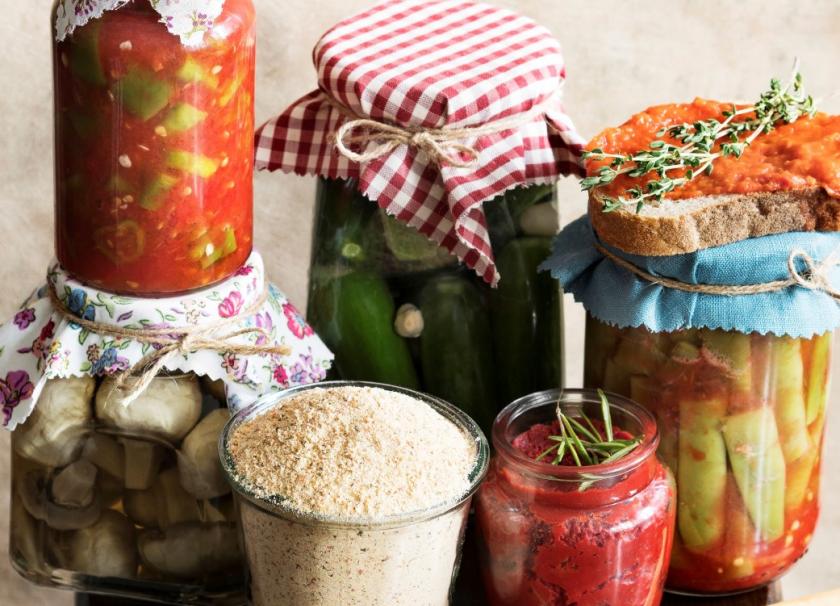
Tips to Stay Safe and Limit Waste
By Mahlea Rasmussen, Education Coordinator
Inspired by Bea Johnson's Zero Waste Home
We are in uncertain times and some of you may be second-guessing some of your zero waste practices and replacing them with safety measures for you and your family. I was proud not to have chemical cleaners in my home and never used plastic gloves - but now those products are being suggested for staying clean and safe. Here are some tips to keep your home safe while working towards more sustainability.
Switch to on-line banking and billing as common practice
Most companies have switched to online methods for billing and banking. Take advantage of these services to limit your contact with outside materials that could be contaminated.
Zero Waste Home, p. 176
You can also go to the following websites to stop some mail from cluttering up your mailbox and limit your contact with outside materials entering your home:
Stop direct mail
Stop credit card and insurance offers
Zero Waste Home, p. 173
Turn off the TV and digital media
In these times of isolation and quarantine, it is easy to turn on the TV and turn off life. Make sure you are taking time away from electronic distractions. Save a little energy and get creative. Take this chance to connect with your family or partner you find yourself quarantined with. A game night, hike or making dinner together are all activities that do not require a screen.
Zero Waste Home, p. 185
Repair it
For the time being, a lot of stores are closed and it is important to limit one's trips out of the home. This takes away the option of simply throwing a needed item away and replacing it. This is a good opportunity to see if you can fix it! If you don't know how to fix the item, there are tons of how-to videos on YouTube and ifixit.com for electronics.
Zero Waste Home, p. 23
Learn how to make it
Due to recent food shortages, and with all of us trying to limit our trips to the grocery store, it may be a more economical option to buy ingredients to make things, like bread. Here are a couple of links for homemade bread from my favorite bloggers, along with a recipe for flour tortillas from Zero Waste Home (p. 71).
Sourdough Tips for the Occasional User
No Knead Artisan Bread
Flour Tortillas
Ingredients
1 1/2 tsp salt
1 tsp baking powder
1/2 cup cold butter
1 cup warm water
Directions
- Combine dry ingredients in a large bowl.
- Incorporate the butter into the mixture and mix with your fingertips until it resembles coarse crumbles.
- Add the water and combine until soft dough forms.
- Separate into 12 small balls.
- Roll out each ball as thinly as possible and cook in a pan over medium heat for 20 seconds on each side.
Preserve It
To help make your trip to the grocery store a little more worthwhile and avoid waste, there are a few things you can do to preserve your perishables.
Dry it - if you are lucky enough to own a dehydrator this is the time to bust it out. Use it to make things like dried fruit, kale chips or jerky. You can also use your oven at a low setting. Check out food-hacks.wonderhowto.com to learn how, and for other great ideas.
Freeze it - Along with soups, broth and berries did you know you could freeze avocado and eggs? Respectfood.com has a list of 15 uncommon and surprising things you can freeze for later.
Refrigerator pickles - if canning intimidates you, try making small batches of pickles. You can also use this method of preserving for other vegetables. I like carrots, jalapeños, and cauliflower. Here is a simple recipe from www.simplyrecipes.com to get you started.
Ingredients
1 small sweet yellow onion
1 cup apple cider vinegar
1 cup water
1/4 cup granulated sugar
1 tablespoon kosher salt
1 1/2 teaspoons pickling spice, homemade or store-bought
- Wash and dry the jars and cucumbers: Wash 2 wide-mouth pint jars and their lids in hot, soapy water. Set them aside to dry.
- Rinse the cucumbers well under cold water, pat them dry, and then set them on a towel to dry completely.
- Slice the cucumbers and onion, then pack them in the jars: With a sharp knife or a mandoline slicer, slice the cucumbers and onion into slices 1/8- to 1/4-inch thick.
- Firmly pack the cucumbers and onions into the jars, fitting in as many as you can without smashing the vegetables. Leave 1/2-inch or so of headspace at the top of the jars.
- Make the brine: In a small saucepan over medium-high heat, bring the vinegar, water, sugar, salt, and pickling spice up to a simmer. Stir occasionally and continue simmering until the sugar and salt are dissolved.
- Pour the brine over the vegetables: If you have a canning funnel, use it here to make it easier to fill the jars. Carefully pour or ladle the hot brine into each jar, filling the jars until the cucumbers and onions are covered. It's ok if a few small pieces poke out the top.
- Cool and refrigerate for 24 hours: Screw on the lids, then let the jars cool to room temperature (about an hour). The cucumbers will start bright green but will become darker and more "pickle-colored" as they cool.
- Place them in the refrigerator. Wait at least 24 hours before eating the pickles to let the flavors develop. Use them within one month.
I hope this inspires you to continue on your sustainable journey and helps keep you and yours safe.
More Co-op News
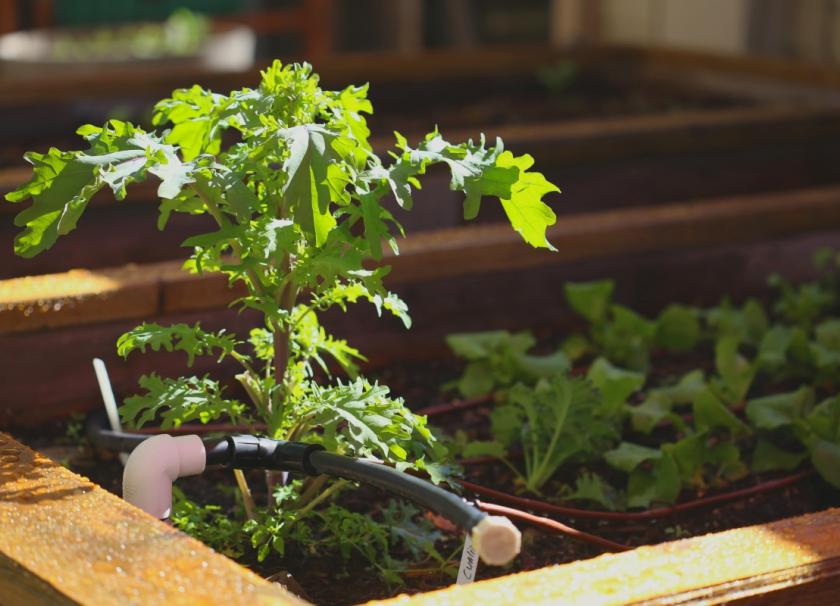
Henry in the Garden: Already Preparing for the Spring
The bane of all gardeners is powdery mildew - that white substance that collects both on the tops and bottoms of the leaves of your healthiest vegetable plants. Cucumbers and zucchini seem to be more easily affected by this scourge than many others.

GM Report: Gratitude for a Great 2019 at the Co-op
It’s the season of gratitude and reflection on the year that has passed, and there is so much to be thankful for as a Co-op owner.
2019 started off with the news that over $13,000 in emergency donations had been raised from Co-op owners and shoppers for support and relief efforts after Paradise, CA was leveled by a wildfire. This outpouring of our support was critical in the months after the fire, after the news trucks had left and the work of rebuilding began. I know how grateful we all are for the much calmer smoke season that our region experienced this summer.
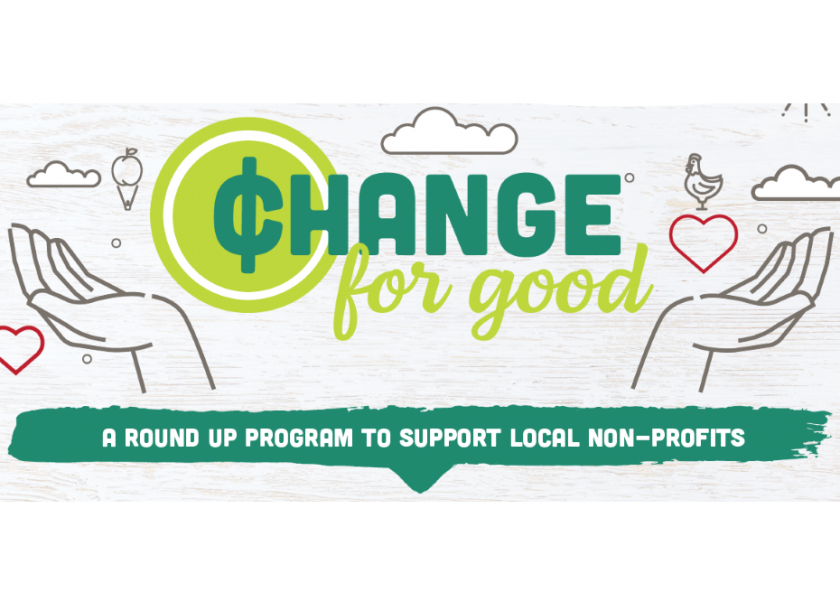
Rounding Up in October
Part of what makes co-ops unique are the guiding 7 Principles of Cooperation. One of the seven that is felt strongly in Ashland is "Concern for the community" - and that's why the Co-op is offering a new way to give back to our community for the month of October. When you pay at the register, you can round up your total to the nearest dollar. For example, $11.68 becomes $12, and $0.32 is donated.

Win 2 tickets to "Chicken Done Simply" cooking class
Find out how fun and educational Co-op cooking classes are! Sign up below for the chance to win two free seats (for you and a friend or loved one) at the next class, "Chicken Done Simply" with the Co-op's own Michelle Guerrie.

Fall Staff Picks
Thanks to alpine trails and shaded valley creeks, outdoor recreation is year-round in the Rogue Valley. But fall usually makes for more frisky feet, so we asked Co-op employees for their favorite fall activities and recommendations for what they grab before they head out.
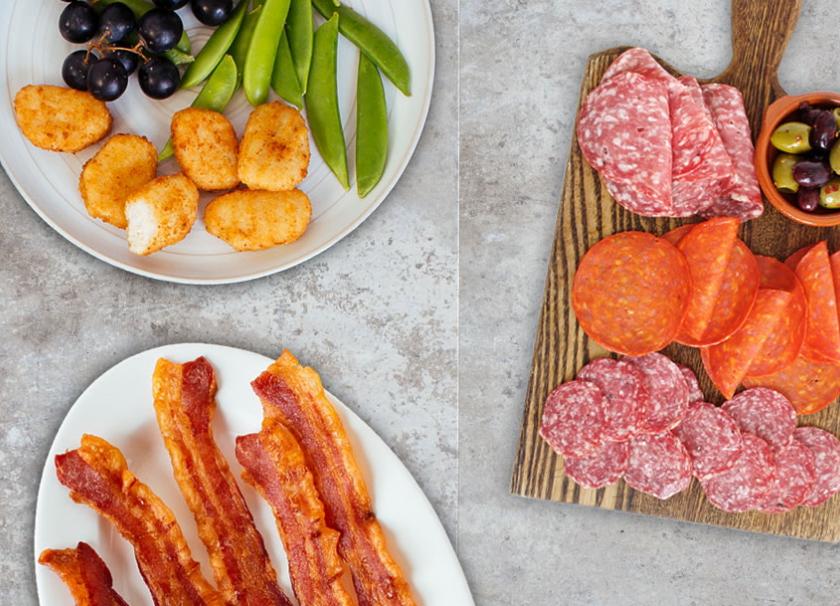
Applegate products joining Co-op Basics
Just in time for the school year, Applegate products are being added to the Co-op Basics program! The Co-op carries a variety of Applegate products, like sliced deli meat, cheeses, bacon, and sausages. Now as part of the Co-op Basics program, you’ll be saving up to $2 on Applegate products across the store, every day.

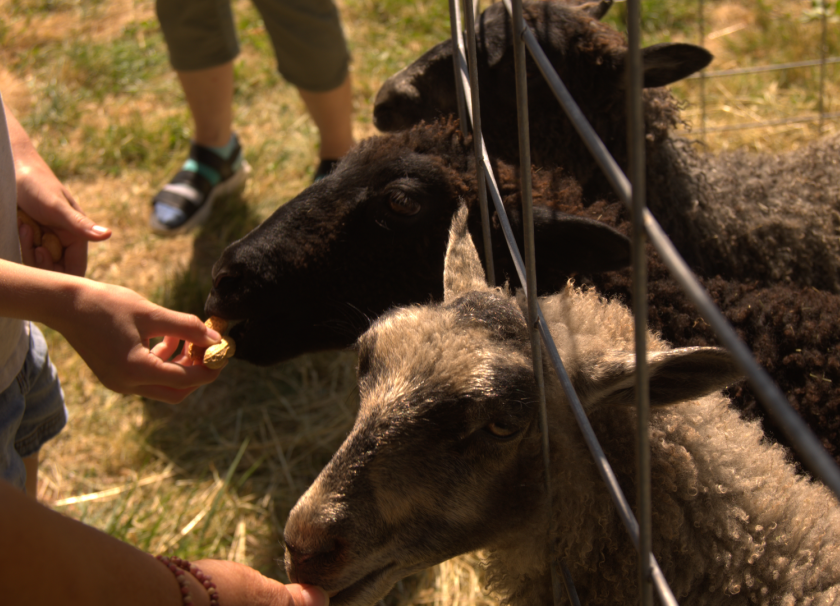
2019 Farm Tour Recap
Another successful farm tour is in the books! With 30 farms this year, visitors could see how bigger farms work, like Herb Pharm, Fry Family Farm, and Rogue Creamery, while also experiencing the joys of smaller farms, such as Turning Point Farm, Fox Run Farm, and Daily Blessing Farm.
Visitors of all ages enjoying Goodwin Creek Gardens
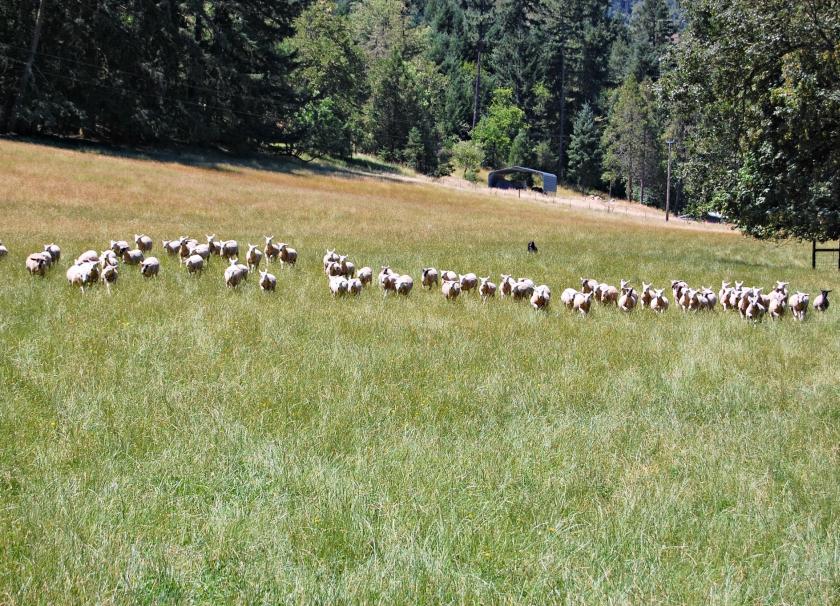
AFC Celebrates 20 Years with Magnolia Farms
This year, the Ashland Food Co-op proudly celebrates their 20 year partnership with Magnolia Farms. Their pasture raised, no antibiotics, no hormones lamb is a staple in the Co-op Meat Department. Magnolia Farms is graciously donating the lamb for our August First Friday in celebration of our long standing partnership.
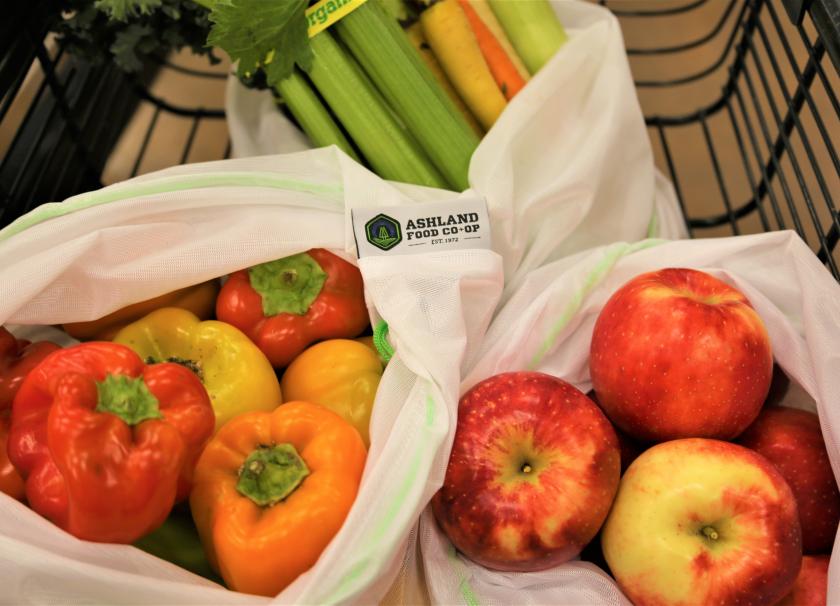
Compostable Bags
The Co-op has been asked if compostable plastic bags are a viable alternative to the standard plastic bags offered in the produce and meat departments.
For several reasons, compostable bags are not in line with the Co-op’s goals and standards.
Not compostable at home
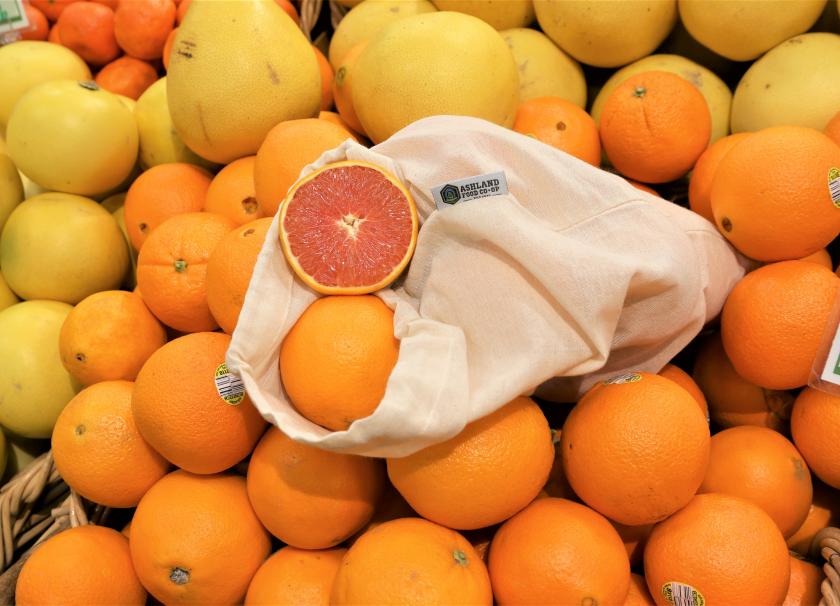
Sustainability Update: Energy efficiency and zero waste
Energy Efficiency
We are happy to announce that we are a member of the Energy Trust of Oregon’s Strategic Energy Management program. This is a free program available to customers of Avista and Pacific Power, which offers awesome incentives including a paid internship!
Community Grant Recipients 2019
The Ashland Food Co-op donated over $29,000 to 28 local nonprofit organizations through their Community Grant Program.
The Community Grant program is the focus of one of the fundamental Cooperative Principles, which all cooperative enterprises follow. Our Community Grant Program supports Principle 7, Concern for Community.

Meet the 2019 Board of Directors
Congratulations to Annie Hoy, Melina Barker, Lisa Beam, and Steve Bowman for their election to the Board of Directors! We were delighted to have such a strong slate of candidates to fill our four vacancies. You can read more about each new director here.

How to stay sustainable with paper products
Have you thought about how sustainable your paper home products are? While the use of single-use plastics has (rightfully) been criticized, some products are made to be single-use - like toilet paper, paper towels, and napkins. With these products, it’s best to examine sustainability by looking at what goes into their production.

2019 Owner Coupon / Benefits Calendar
Hey Co-op owners - if you're wondering if it's a $5 off or 10% discount month... you can reference this calendar.
These benefits are available to all Co-op owners. If you're not an owner yet, you can sign up online!
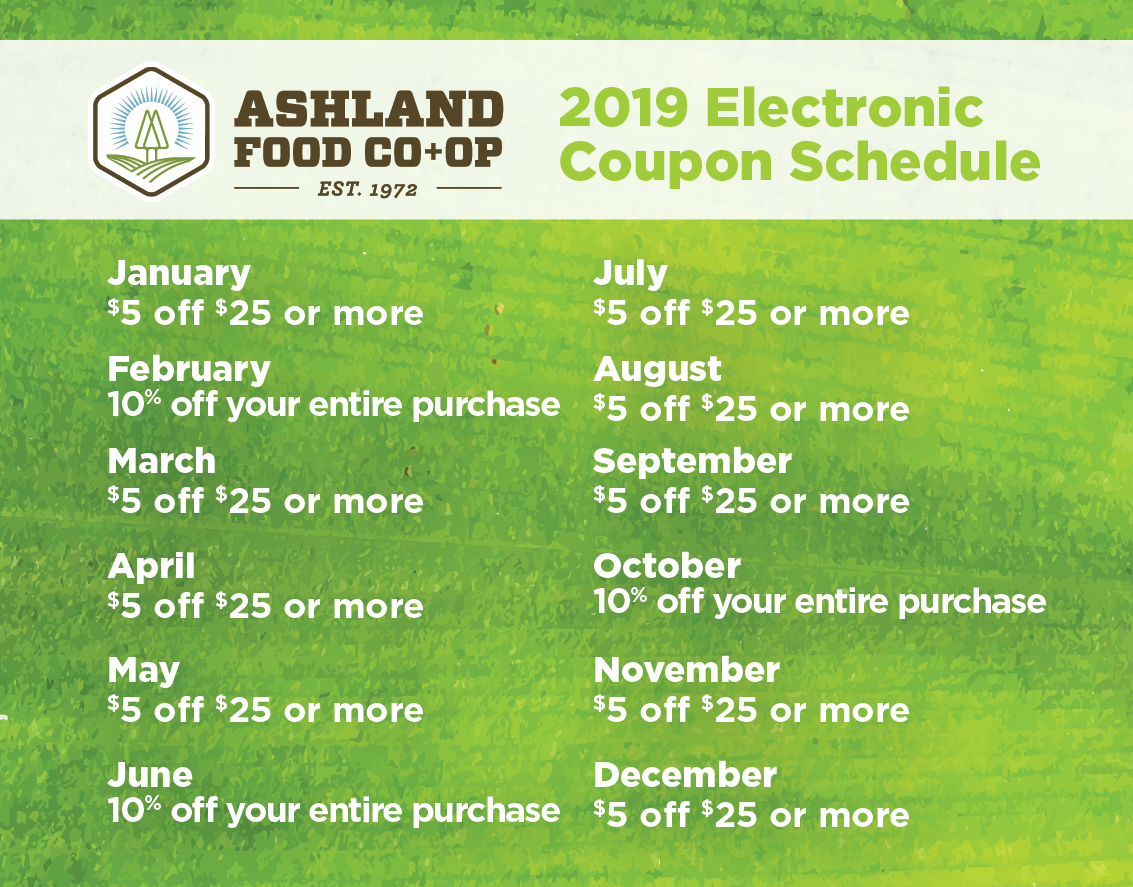

Farm Tour on the Shelves
The Farm Tour shines a spotlight on Southern Oregon - it represents the full range of products grown in the Rogue Valley. The Farm Tour isn't until July 14, but here's a list of tour activities for participating farms that are also on the shelves at the Ashland Food Co-op. Get an early taste of quality local goods!
